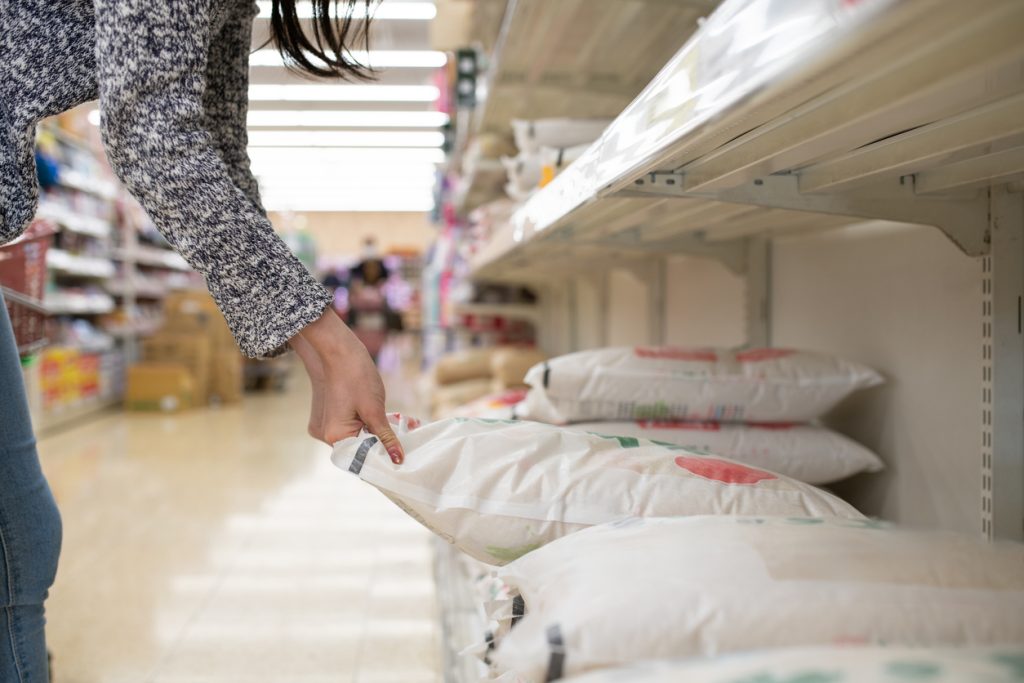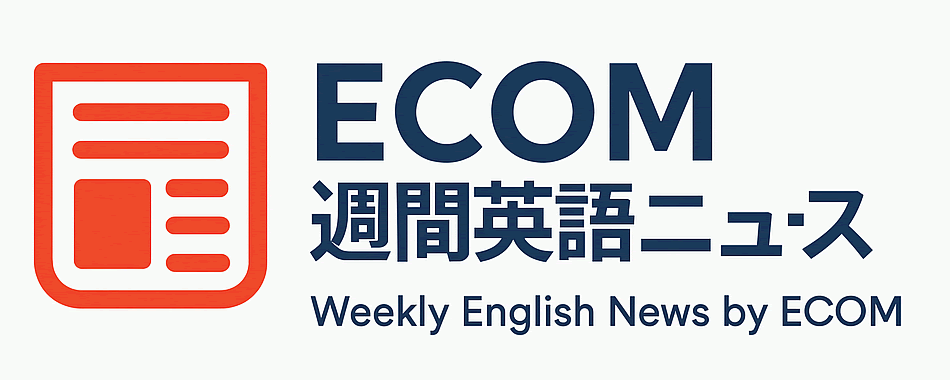
The Japanese government announced today that it will release part of its national rice reserves to stabilize soaring prices, which have recently hit a record high. According to the Ministry of Agriculture, rising production costs, adverse weather conditions, and increased global demand have contributed to the price surge.
Officials stated that the reserve release aims to alleviate concerns over potential shortages and ensure that consumers have access to reasonably priced rice. Critics, however, argue that the move may only offer a short-term fix and that more sustainable agricultural policies are necessary to address the root causes of volatility in rice production and pricing.
Meanwhile, farmers’ associations are calling for additional government support, including subsidies and more robust disaster relief programs, to help mitigate the impact of fluctuating market conditions and changing climate patterns on their livelihoods. The government has indicated it will continue to monitor the situation closely and may implement further measures to maintain stable rice supplies.
T** J******* g********* a******** t**** t*** i* w*** r****** p*** o* i** n******* r*** r******* t* s******** s****** p*****, w**** h*** r******* h** a r***** h***.
A******** t* t** M******* o* A**********, r***** p********* c****, a****** w****** c*********, a** i******** g***** d***** h*** c********** t* t** p**** s****.
O******** s***** t*** t** r****** r****** a*** t* a******** c******* o*** p******** s******** a** e***** t*** c******** h*** a***** t* r******** p***** r***. C******, h******, a**** t*** t** m*** m** o*** a s****-t*** f** a** t*** m*** s********** a*********** p******* a* n******** t* a****** t** r*** c***** o* v********* i* r*** p********* a** p******.
M********, f******’ a*********** a* c****** f* a********* g********* s******, i******** s******** a** m*** r***** d******* r***** p*******, t* h*** m******* t** i***** o* f********* m***** c********* a** c******* c****** p******* o* t**** l*********. T** g********* h** i******** i* w*** c******* t* m****** t** s******** c****** a** m** i******** f****** m******* t* m****** s***** r*** s*******.
The key point
The Japanese government is releasing its rice reserves to curb soaring prices, prompting discussions about the balance of supply and demand, the impact on farmers, and the need for sustainable agricultural policies.
Vocabulary:
- Soaring prices
- 和訳: 急上昇する価格
- 説明: 物やサービスの価格が急激に上がっている状態を表す表現。
- Release reserves
- 和訳: 備蓄(在庫)を放出する
- 説明: 政府や企業が、非常時や価格安定などのために蓄えていた資源・物資を市場に放出すること。
- Record high
- 和訳: 記録的高値
- 説明: これまでに類を見ないほど高い水準や価格。
- Alleviate concerns
- 和訳: 懸念を和らげる
- 説明: 人々が抱えている不安や心配を軽減すること。
- Root causes
- 和訳: 根本的な原因
- 説明: ある問題を引き起こしている最も重要な原因や要素。
- Short-term fix
- 和訳: 短期的な解決策(対症療法的対策)
- 説明: 長期的な解決にはならないが、とりあえずの問題を一時的に解消する方法。
- Sustainable agricultural policies
- 和訳: 持続可能な農業政策
- 説明: 農業生産を長期的に維持・発展させるための環境・経済・社会的にバランスの取れた政策。
- Fluctuating market conditions
- 和訳: 変動する市場状況
- 説明: 需要や供給、価格が不安定に変化し続ける状態。
- Disaster relief programs
- 和訳: 災害救援(対策)プログラム
- 説明: 台風や地震などの自然災害による被害を受けた人や地域を支援するための取り組み。
- Monitor the situation closely
- 和訳: 状況を注意深く(継続的に)注視する
- 説明: 問題がどのように展開するかを常に観察し、必要に応じて対策をとるために状況を見守ること。
和訳
日本、記録的な高値を受けコメ備蓄を放出へ
東京(2025年2月23日) — 日本政府は本日、最近記録的な高値を付けているコメの価格を安定させるため、国家備蓄の一部を放出すると発表した。農林水産省によると、生産コストの上昇や悪天候、世界的な需要増加が価格高騰の要因になっているという。
政府関係者は、備蓄の放出によって供給不足に対する懸念を和らげ、消費者が手頃な価格でコメを購入できるようにすることを目的としていると述べている。しかし批評家の中には、これは短期的な対応策に過ぎず、コメ生産と価格の変動の根本的な原因に対処するためには、より持続可能な農業政策が必要だと主張する声もある。
一方で、農家団体はさらなる政府支援、具体的には補助金やより強固な災害救援プログラムなどを求めており、市場の変動や気候変動が農家の生計にもたらす影響を軽減するよう訴えている。政府は今後も状況を注意深く監視し、コメの安定供給を維持するために追加的な措置を講じる可能性があるとしている。
MikeとEmilyのDiscussion
Emily: Hey Mike, did you catch the news about Japan releasing its rice reserves? It sounds like their prices have gone through the roof!
Mike: Yeah, I did. Apparently, the cost of rice in Japan has hit a record high. They’re hoping that by releasing some of their emergency stock, they can bring prices back down.
Emily: Exactly. I heard the surge was caused by a combination of factors—rising production costs, bad weather, and increased global demand. It must be tough on consumers, especially in a country where rice is a staple food.
Mike: Definitely. It’s also interesting to see how this could impact farmers. Some farmers might benefit if the high prices mean higher profit margins, but others might struggle if costs for fertilizer and supplies are skyrocketing.
Emily: That’s a valid point. And then there’s the debate about whether releasing reserves is just a short-term fix. People are saying that Japan needs more sustainable agricultural policies to address the root causes.
Mike: Right. It’s kind of like putting a Band-Aid on the problem, isn’t it? But at least the government is trying to calm the market and ensure people can still afford rice.
Emily: True. And I guess farmers are asking for more than just price interventions—they want subsidies and better disaster relief programs, especially with all the extreme weather events lately.
Mike: It’s a complex situation. I imagine the government will be monitoring the market closely to decide if they need to release more reserves or even import extra rice if things don’t improve.
Emily: Agreed. Well, I’ll be keeping an eye on how it all unfolds. It could be a good case study for other countries dealing with similar food security issues.
Mike: Absolutely. Thanks for chatting, Emily. It’ll be interesting to see what happens next.
Emily: H** M***, d** y** c**** t** n*** a**** J**** r******** i** r*** r*******? I* s***** l*** t**** p***** h*** g*** t****** t** r***!
Mike: Y***, I d**. A*********, t** c*** o* r*** i* J**** h** h** a r***** h***. T***’** h***** t*** b* r******** s*** o* t**** e******** s****, t*** c** b**** p***** b*** d***.
Emily: E******. I h**** t** s**** w** c***** b* a c********** o* f******—r***** p********* c****, b** w******, a** i******** g**** d*****. I* m*** b* t**** o* c********, e********* i* a c****** w**** r*** i* a s***** f***.
Mike: D********. I*’* a*** i********** t* s** h** t*** c**** i****** f******. S*** f****** m**** b****** i* t** h*** p***** m*** h***** p***** m******, b** o***** m**** s****** i* c**** f** f******** a** s****** a** s*********.
Emily: T***’* a v**** p****. A** t*** t***** t***** a***** w***** r******** r******* i* j*** a s****-t*** f**. P***** a* s***** t*** J**** n**** m*** s********** a*********** p******** t* a****** t** r*** c*****.
Mike: R****. I*’* k*** o* l*** p****** a B***-A** o* t** p******, i*’* i*? B** a* l**** t** g********* i* t***** t* c*** t** m***** a** e***** p***** c** s**** a**** r***.
Emily: T***. A** I g**** f****** a* a***** f** m*** t*** j*** p**** i********—t*** w*** s******** a** b***** d******* r***** p******, e******** w*** a** t** e****** w****** e***** l****.
Mike: I*’* a c****** s********. I i****** t** g********* w*** b* m******** t** m***** c****** t* d***** i* t*** n*** t* r****** m*** r******* o* e*** i***** e**** r*** i* t**** d*’* i******.
Emily: A*****. W***, I’** b* k****** a* e* o* h** i* a** u******. I* c**** b* a g*** c*** s**** f** o**** c******** d****** w*** s***** f*** s******* i*****.
Mike: A*********. T***** f** c******, E****. I*’** b* i********** t* s** w*** h****** n****.
和訳
Emily: 「ねえマイク、日本がコメの備蓄を放出するっていうニュース見た? 価格がものすごく上がってるみたいよ!」
Mike: 「ああ、見たよ。日本でのコメの価格が記録的な高さになってるみたいだね。非常用の在庫を一部放出して、市場価格を下げたいってことだろう。」
Emily: 「そうなの。聞いた話では、生産コストの上昇、悪天候、それから世界的な需要の増加が重なって値上がりしたらしいよ。コメが主食の国だから、消費者にとっては大変だよね。」
Mike: 「確かに。それに農家にとってはどう影響するのかも気になるよね。高値で売れれば利益は出るかもしれないけど、肥料とか資材のコストが上がってる農家は苦しいんじゃないかな。」
Emily: 「そうだね。あと、備蓄の放出は一時的な対策にしかならないかもしれないって言う人もいるみたい。根本的な原因を解決するには、もっと持続可能な農業政策が必要だって。」
Mike: 「その通り。一時しのぎって感じはするけど、少なくとも政府は市場を落ち着かせて、人々がコメを買えるようにはしたいんだろうね。」
Emily: 「そうだと思う。農家からは、価格対策だけじゃなくて、補助金とか、最近の極端な気象に対応できる災害救援策を望む声もあるみたい。」
Mike: 「かなり複雑な問題だよね。状況が改善しなかったら、政府は備蓄をさらに放出するか、あるいはコメを輸入する可能性もあるから、今後も市場の動きを注視していくんじゃないかな。」
Emily: 「同感。私も今後どうなるか注目してる。似たような食料安全保障の問題を抱える国にとっては、良い事例研究になるかもしれないし。」
Mike: 「だね。話してくれてありがとう、エミリー。これからどう展開していくか興味深いね。」
ECOMでは、毎週これらの記事を、ディスカッション教材として使え、先生が音読の発音チェックもしてくれます。
興味がある方は体験レッスンをご活用ください。





